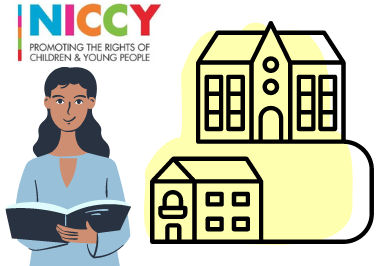“Special Schools Abandoned” says Children’s Commissioner


“Special Schools Abandoned” says Children’s Commissioner
Koulla Yiasouma, Northern Ireland Commissioner for Children and Young People, said over 30% of Special Schools are providing education on a part time or reduced day basis and that the NI Government has abandoned them, failing in its duty to provide a full education to children in all special schools.
She explained, “Despite the fact that, at the start of this lockdown, two months ago, the Minister for Education issued a directive requiring all Special Schools to remain open for over 6,000 children and young people, we know there have been a number of schools that have only been able to offer part-time provision.”
Outlining the urgent steps that need to be taken to rectify the situation, the Commissioner raised concerns about the continued detrimental impact of part time education on some of our most vulnerable children’s education, health, and wellbeing.
“It is my understanding schools are facing a number of issues including workforce absence, concerns that risks haven’t been appropriately assessed and adequate safeguards put in place and uncertainty regarding testing and vaccinations.” She said.
“I appreciate this is a significant task but it is disappointing that insufficient work has been undertaken by relevant authorities to anticipate these issues and address them as soon as they arose.”
Special schools were asked to remain open as they provide an essential service for children who have multiple complex needs and disabilities.
The Commissioner said: “It is unacceptable that many children are still not receiving the education and health care they require, and indeed are entitled to, from their Special School setting.
“Urgent action must be taken by the Department of Education, the Education Authority (EA), Health and Social Care, and Special Schools Principals and Boards of Governors to identify and resolve the issues preventing those Special Schools from offering full-time education.”
The Commissioner advised these key Departments and Agencies to work to address:
She concluded: ‘There must be a concerted, collaborative effort to ensure the safe, full and sustainable opening of all our Special Schools; making sure our most vulnerable children and young people can fully realise their right to an education during this Pandemic and beyond.”
ENDS
NOTES TO EDITORS